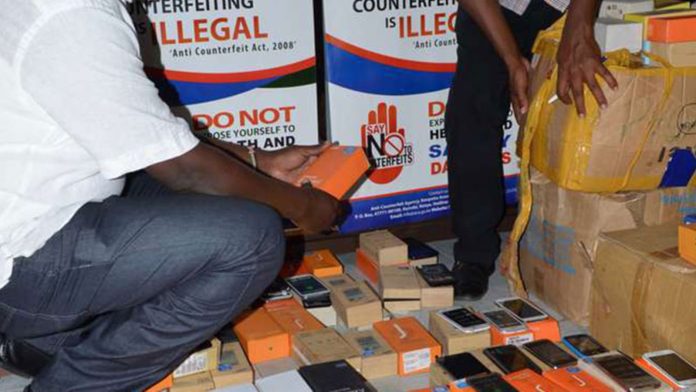The United States has flagged Kenya as a top market for fake goods. The United States says that fake goods from China, India, Turkey and Vietnam have been flocking the Kenyan market and denying American firms and government revenues.
These claims are contained in the 2025 Special 301 Report on Intellectual Property Protection and Enforcement that was published by the Office of the United States Trade Representative (USTR).
“The counterfeits are shipped either directly to purchases or indirectly through transit hubs, including in Chile, Hong Kong, Kyrgyz Republic, Singapore, Turkiye, and the United Arab Emirates to third-country markets such as Brazil, kenya, Mexico, Nigeria, Paraguay, and Russia, that are reported to have ineffective or inadequate IP enforcement systems,” the report states.
The report has listed medicines, personal care products, apparel and footwear, electronics, and sports wear, toys, chemicals, automotive and aircraft parts, food and beverages, and household consumer products as some of the top fake goods that are sold in the Kenyan markets with counterfeited trademarks of American companies.
“The problem of trademark counterfeiting continues on a global scale and involves the production, transshipment, and sale of a vast array of fake goods,” the report stated.
The report goes on to state that counterfeits have become more sophisticated and are using legitimate express mail, international courier, and postal services to ship counterfeit goods in small consignments instead of ocean-freight in order to evade enforcements.
At the same time, the report suggests that dealers are shipping goods separately from counterfeited labels and packaging to evade enforcements.
“Counterfeiters also increasingly sell counterfeit goods on online marketplaces, particularly through platforms that permit consumer-to-consumer sales,” the report says.
Trump’s administration planning to shut down six US embassies in Africa
The USTR stated that it is urging e-commerce platforms to take proactive and effective steps to reduce piracy and counterfeiting of goods.
“This can be done by establishing and adhering to strong quality control procedures in both direct-to-consumer and consumer-to-consumer sales, vetting third-party sellers, engaging with right holders to quickly address complaints, and working with law enforcement to identify IP violators,” the USTR said in the report.








